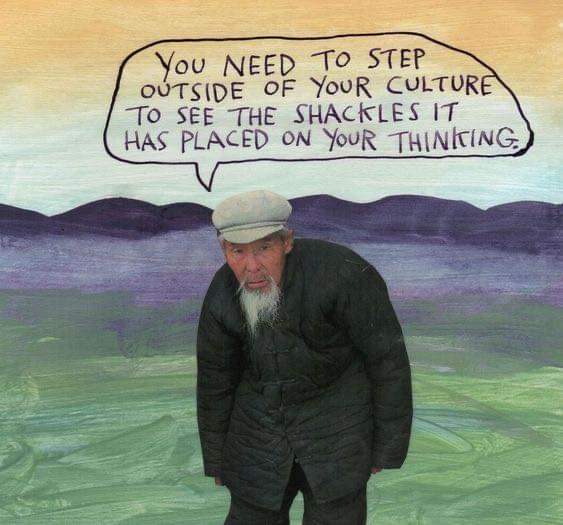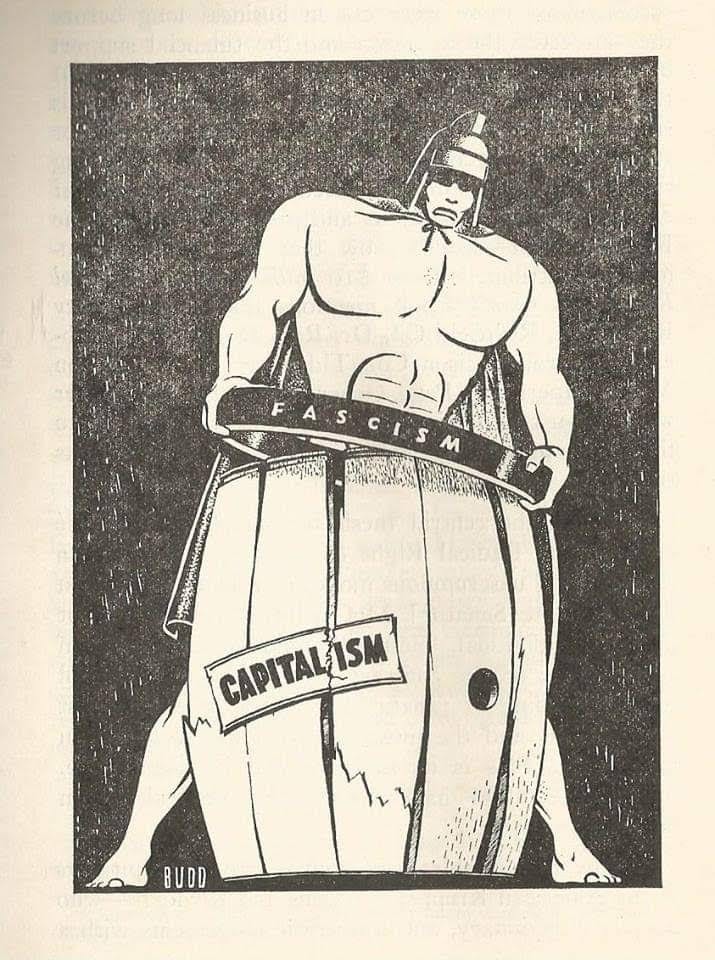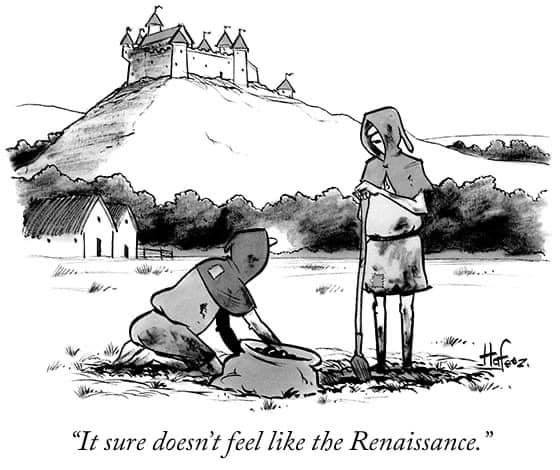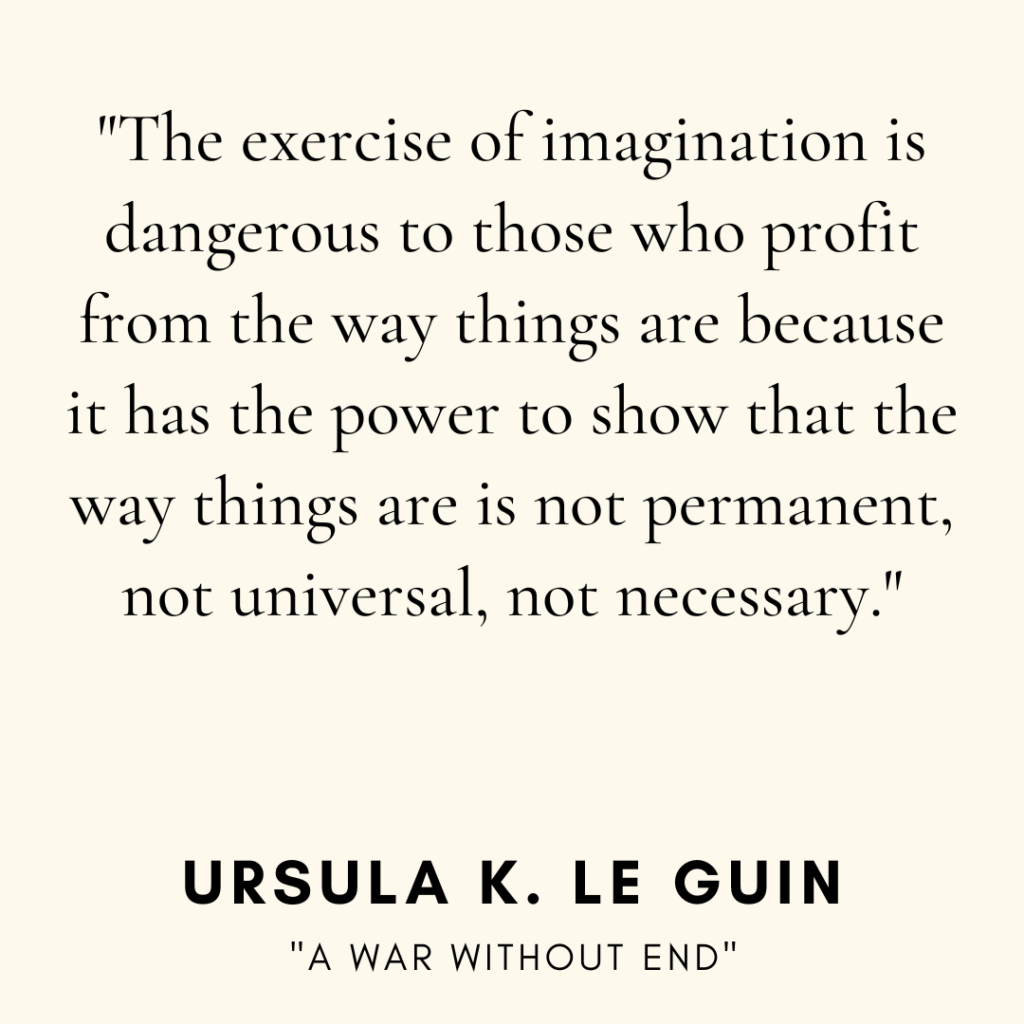Most progressive #mainstreaming isn’t about ending the #deathcult – it’s about making its worship feel more fair, more inclusive, more polite. There is some real everyday value in this. Fewer people get crushed immediately, some suffering is reduced, that matters.
But let’s be honest about what it does not do, it does not get people off their knees to challenge the altar to stop the sacrifice. It rearranges the seating in the temple, feeding the deeper problem, obedience. Progressive mainstreaming accepts the frame, accepts the metrics, accepts the economy of extraction and then argues about distribution. It negotiates better terms with a machine that is killing us. That is not transformation, it’s managed decline.
The project of real change and challenge – the work the #OMN exists for – starts somewhere else entirely. It starts with people standing up and walking away. Walking out of the temple of the #deathcult we all live in, not in purity, utopia or comfort. But into mess, cooperation, unfinished tools, shared risk, and actual agency. This isn’t about better policies inside the system. It’s about building outside it, under it, alongside it – until the system hollowed itself out and no longer matters.
It’s about people picking up shovels, composting the wreckage, and growing something that can actually sustain life. This is simplicity #KISS #OMN

We have already seen the failures: lived through #Indymedia, the #NGO turn, the #dotcons capture, the #Fediverse repeating old mistakes. When we talk about #OMN, we’re trying to stop people from re-learning the same lessons by losing again. Silence would be complicity.
The #OMN is where critique becomes agency. It’s not about “promoting a project”, if we don’t talk about this without something like #OMN, critique collapses into doom, aesthetics, or personal exits. #OMN is a way to, act collectively, without lying about power, money, or governance.
Forgetting is how capture happens, the moment people stop naming alternatives, the space fills with managerial language, funding logic, and fear-based control. We talk about #OMN to keep the space open enough for something human to grow.
The #OMN is a path that resists #stupidindividualism, where most contemporary “solutions” reinforce isolation, personal brands, and individual safety strategies. #OMN starts from the assumption that survival and meaning are collective. We need to keep talking about this because almost nobody else does.
It’s unfinished – and that matters. It’s not about defending a polished system, instead, it’s about holding open a process. Talking about #OMN is how we invite others into the compost rather than presenting them with a finished product to consume.
We talk about #OMN because it’s a native way of saying: “We don’t have to repeat this. We can build differently, together, if we remember what already worked.”*
It’s not evangelism, it’s stewardship.

A few of us have been working on real, positive, horizontal social and technological solutions for over twenty years. Not hypotheticals, not vibes, things that actually work.
We know they work locally, we know they work socially. And after more than a decade building on the #fediverse, we know they can work in tech, at scale without going vertical, corporate, or authoritarian.
This isn’t speculative any more. Our creative task now – the #nothingnew work – is simply to combine what already works: Horizontal social practice, federated #openweb tech, trust-based governance. We already have a slate of projects waiting to be built: #OMN, #OGB, #indymediaback and #makinghistory. What’s missing is not ideas, it is people willing to show up and implement.
And here’s the hard truth: every time we try to talk about radical or progressive language, power, or structure, people retreat into #blocking and ignoring. The same unresolved tensions get replayed endlessly, nothing is mediated, nothing is grounded. Bad will accumulates, the social commons rots.
This rot isn’t accidental – it’s structural – To work our way out of this mess, we need both #fluff and #spiky. We need broad categories to think clearly, the #mainstreaming #fashernista rejection of this isn’t sophistication – it’s submission. It’s a soft, polite form of #deathcult worship.
You don’t dismantle a #deathcult by being nicer to it, you dismantle it by stopping your participation and building something better.
So this is the question, not rhetorical, not theoretical: Are you going to help make this happen? Are you going to pick up a shovel? Or are you going to stay on your knees, arguing about tone while the ground burns?
















